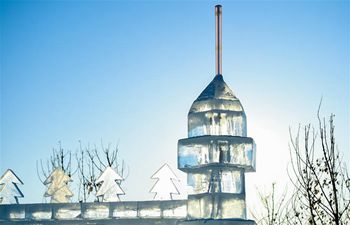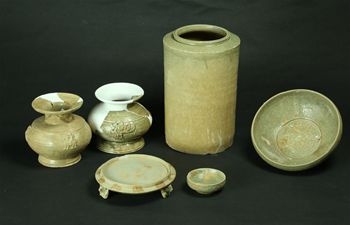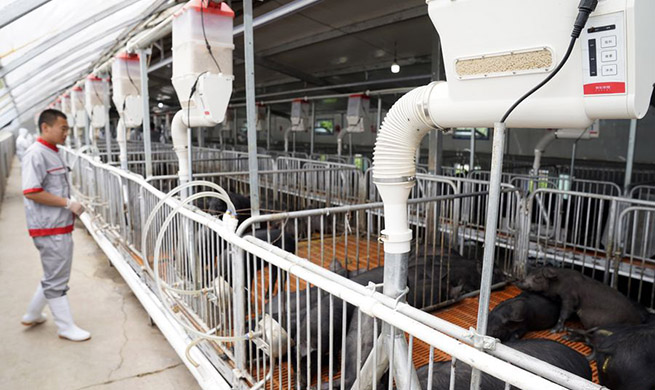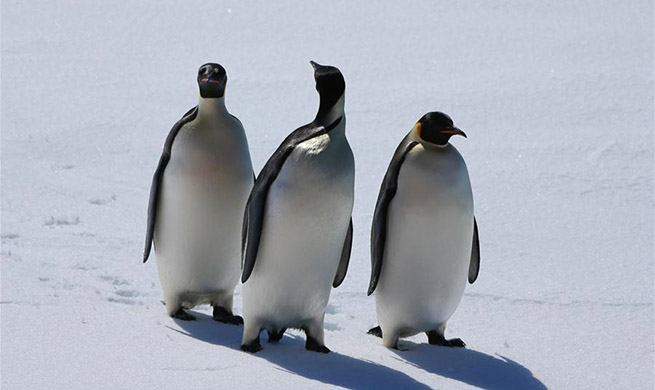SYDNEY, Dec. 9 (Xinhua) -- Thick black ash from bushfires has turned Sydney's iconic blue water beaches into a charcoal sludge, sparking fears from experts that the harbor city's drinking water supply could also be at risk of contamination.
The fear is that it is likely to wash the ash into freshwater catchments when it rains, said ecologist Emma Johnston from the University of New South Wales while speaking with Australia's Special Broadcasting Service (SBS) on Monday.
"It's not the saltwater places where people need to be worried. It's when you're drinking fresh water that's contaminated that you have real human health issues," she said.
With over 2 million hectares of bushland already being destroyed and dozens more blazes continuing to wreak havoc right across Australia's east coast, Johnston explained that if the ash makes its way into Sydney's drinking water catchments it could cause large blooms of toxic algal which might also lead to mass fish deaths.
"With that high density of particulates, you can get the clogging of fish gills or filter feeders might have trouble feeding," she said.
"And if you get a really, really large algal bloom when that starts to decompose, it uses up all the oxygen and can cause fish kills from low oxygen environments."
Already in the midst of the worst drought on record and with dwindling drinking water supplies, the Greater Sydney and Illawarra region will experience level two water restrictions tomorrow, requiring all residents to avoid using garden hoses.
Under the new rules, people will be required to use a bucket or watering can to wash their cars or water plants.
"More than 85 percent of Greater Sydney's water is supplied by captured rainfall and because of the current drought, dam levels have reached the lowest levels seen since the Millennium drought," New South Wales State Minister for Water, Property and Housing Melinda Pavey said.
"By introducing level two restrictions we will save 78.5 gigaliters of water."
Residents who breach the restrictions will face a fine of 220 Australian dollars (150 U.S. dollars), while businesses can be hit with a penalty of 550 Australian dollars (375 U.S. dollars).













